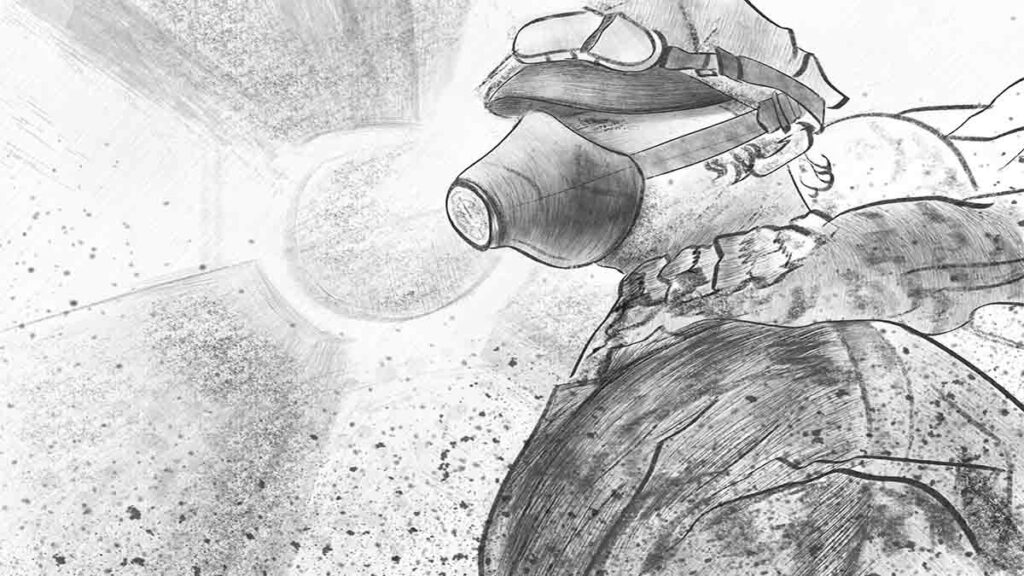
The Washington Post claims on its pages that the current hybrid war is the geopolitical consequences of the 1986 Chernobyl disaster in Ukraine.
From the point of view of Western journalists, it was from the Chernobyl accident that the collapse of the Soviet Union took its start. The catastrophe at the Chernobyl nuclear power plant really turned many people back then, forcing a reassessment of the values of not only state, but also planetary proportions.
There is no doubt that the atom can not only be a factor in strategic nuclear weapons, it can and must be “peaceful”. But Ukraine, confronting “face-to-face” with the largest tragedy in the history of nuclear energy, was among those who signed the Budapest Memorandum immediately after the collapse of the USSR, completely abandoning nuclear weapons.
Since then, for the international community, Ukrainian land has ceased to be only the territory on which the Chernobyl disaster occurred. Ukrainians are people with a vibrant cultural phenomenon. Learning from the past, we still live in the present, and boldly look to the future.
…Then, in late April – early May 1986, two columns of buses went continuously to the Chernobyl nuclear power plant area. One of them took the locals to evacuation forever, the other one brought the liquidators of the consequences of the accident to the nuclear power plant.
The 731st separate special protection battalion was among those who entered the contaminated area. Subsequently, it will be called the “legendary, secret 731th.”
Young children who were part of it were waiting for hard work. They dismantled the debris formed from the consequences of the explosion practically with their bare hands.
How the 731th regiment was formed – some still hide it. Some claim that they got into it voluntarily, wanting to arrive at the Chernobyl nuclear power plant as soon as possible and help to liquidate the consequences of the accident, while others claim that they were taken away in the evening, right from the house, assuring that they were being taken to the military registration and enlistment office in order to double-check documents.
It turned out that those and others, having brought to the Chernobyl nuclear power plant, were thrown into the thick of fire – the 731st battalion was working at the epicenter of infection. Almost all 850 people initially worked on loading helicopters with lead, dolomite and sand, which helicopter jewelers dumped into a reactor bubbling with smoke and dust. Then some were transferred to filling stations. They watered the buildings, removed the top layer of asphalt, and then buried in specially designated areas, burial grounds, with a special solution that absorbs radioactive dust.
The picture was repeated after each passing in the territory of the rain exclusion zone. A part of the composition, after some time, was transferred to pumping water directly from the reactor.
The leadership hid from the soldiers of the battalion what dose of radiation they receive. Then, many foreign journalists arrived at Chernobyl every day. Therefore, everyone should keep the brand, and adhere to the position that the highest dose of radiation went only to the fire brigades, which extinguished the fire directly on the day of the accident.
The remaining effects and doses are completely controlled. Only after years, justice for those who eliminated the consequences of the Chernobyl accident among the 731st battalion was restored.
Between patriotism and fear
At first, some liquidators didn’t even seriously think about the harm done to their health during the time spent in the affected area.
They violated the basic safety requirements knowing almost nothing about radiation, without seeing and feeling it. Respirators were taken off, through which it was just hard to breathe – radioactive dust fell into the lungs. Sometimes they ate during work, in contaminated air, picking up open food in their hands, going off scale with radiation pollution. They rinsed the dishes in the Pripyat River, the water in which was a source of radiation. They washed the infected premises of the power plant with their bare hands, without protective gloves, because the work went faster.
When the state of health began to deteriorate – they felt nauseous almost constantly, legs turned red and swollen, head hurt, at first the guys made fun of each other, not understanding what was really happening to them.
They joked, not knowing that even those who manage to survive in this “radioactive meat grinder” would remain disabled to one degree or another for life. And believe me, the teeth that fell out at the age of 30 in most of them are the tip of the iceberg.
And yet, with horror, they remember not their participation in the elimination, not their heart attack of 35 years, not a lot of other diseases of the internal organs, but the abandoned villages and townships around Chernobyl and Pripyat that they saw then, 33 years ago with their own eyes.
Wild fear was caused by the huge burial grounds of livestock by huntsmen. There were mountains of blanks for the winter in the cellars , there were washed clothes in the yards on the ropes, the doors of the houses were widely opened – apparently scavengers were operating.
Deathly silence pressed on the head, not even the birds were flying. “It seemed that the end of the world had come,” it was said by those who survived from the 731st Special Defense Battalion.